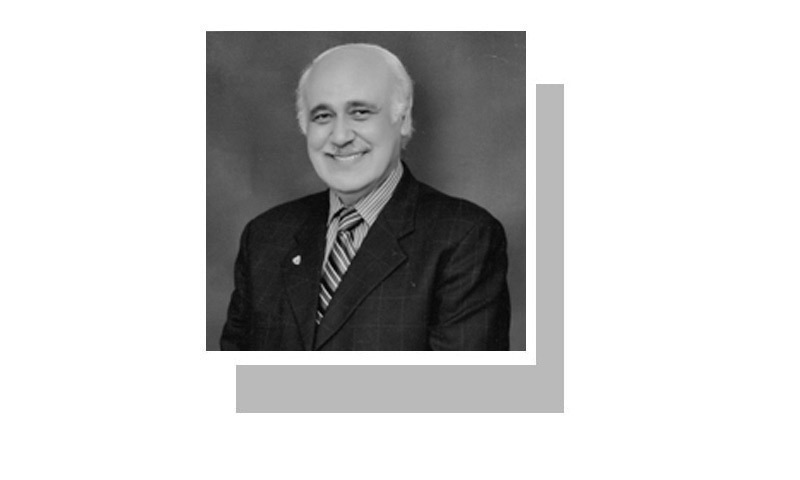PRESIDENT Donald Trump’s offer of mediation should be taken seriously. Not by the North and South Koreans, or by the Palestinians and Israelis, or by the Indians and Pakistanis. It deserves consideration by its true audience — the committee that decides the Nobel Peace Prize.
No leader in recent history has lobbied as hard for this Oscar of international awards as he has. It must rankle Trump that, three years into his presidency, he has failed to secure the Nobel Peace Prize that his predecessor Barack Obama was given within 10 days of assuming office, exactly 10 years ago.
Thorbjørn Jagland (the Norwegian chairman of the committee that obliged Obama) explained the rationale behind that extraordinary decision: “We have not given the prize for what may happen in the future. We are awarding Obama for what he has done in the past year.” He admitted that “the committee was influenced by a speech Obama gave about Islam in Cairo in June 2009 … and his efforts to prevent nuclear proliferation and climate change, and Obama’s support for using established international bodies such as the United Nations to pursue foreign policy goals”.
At this year’s UN General Assembly session, President Trump used the same United Nations to showcase himself. He met world leaders with condescending bonhomie, even waiting at the end of a secret telephone line for a conversation with his Iranian counterpart Hassan Rouhani. The furtive assignation had been brokered by French president Emmanuel Macron. It proved infructuous when the Iranian leader refused to respond to this ham-handed overture.
Imran Khan has matured immeasurably.
One of the leaders Trump did meet was Prime Minister Imran Khan — their second meeting this year. Trump again volunteered to act as a mediator over the Kashmir issue. This time, Prime Minister Khan was circumspect in his response. He could afford to be. He has matured immeasurably in the months since his interaction with world leaders, in particular Saudi Crown Prince Mohammad bin Salman.
The chemistry between the two of them is palpable. They clearly enjoy each other’s company and seem to share a conviction that each has an ordained responsibility to drag his country into the 21st century. A year ago, at the beginning of his innings, Imran Khan visited Saudi Arabia as an impoverished supplicant. This time, he stopped there on his way to the UN and left in a Saudi plane with the heady invitation to mediate between the Saudis and Iran.
A year ago, Imran Khan endured the brickbats of the opposition which referred to him derisively as a ‘selected leader’. A year later, his performance in New York onstage at the UN and off stage at various forums like the Council on Foreign Relations showed that he has outsmarted his detractors and outgrown his selectors.
It is a telling indication of his newfound decisiveness that, immediately upon returning to Islamabad he removed Maleeha Lodhi from her sinecure as our permanent representative. She has held important posts in the US and the UK under every shade of government — Benazir Bhutto’s, Gen Musharraf’s, Nawaz Sharif’s and finally Imran Khan’s. The identity of her sponsor has always been one of Islamabad’s open secrets. Her departure is a timed assertion by Imran Khan of his new status as an international figure who can hold his own with Malaysia’s Mahathir, Turkey’s Erdogan and India’s Modi.
Speeches by world leaders, regardless of their standing, at the UNGA are directed primarily towards a domestic audience. Imran Khan’s speech instead chided the UN on climate change, Western countries on the irrationality of Islamophobia, and India on the foreseeable, combustible implications of its pogroms in occupied Jammu & Kashmir.
His speech stung the Indians enough to demand the right of rebuttal. The Indian press chortled that he had overshot the UN’s time limit on UNGA speeches, forgetting that impassioned sincerity follows its own clock. It has not faulted — it cannot — the truth of his contention that a belligerent nuclear India would do well not to provoke a nuclear defensive Pakistan.
Imran Khan’s UN speech had another effect: it dented the self-confidence of the opposition parties within Pakistan. What can they offer as an encore, without repeating his arguments?
Meanwhile, Prime Minister Narendra Modi and his Gog-Magog team of Amit Shah and Rajnath Singh are determined to destroy Kashmir. Not Jammu, where the Hindu pundits sought refuge, but the valley itself. Its economy — once dependent on tourism and its fecund orchards — is being ravaged. Fruit trees are being sawed, the unending curfew is a cruel reprise of the Warsaw ghetto, and Kashmiri Muslim males (some carrying school satchels) are being arrested and expatriated to unnamed camps in India.
At the UN, Imran Khan warned of war, but argued for peace. President Trump might find he has competition from an unexpected source.
The writer is an author.
Published in Dawn, October 3rd, 2019













































